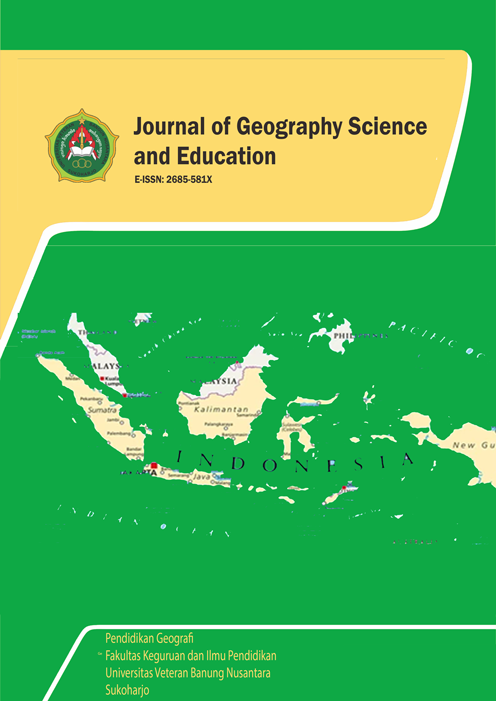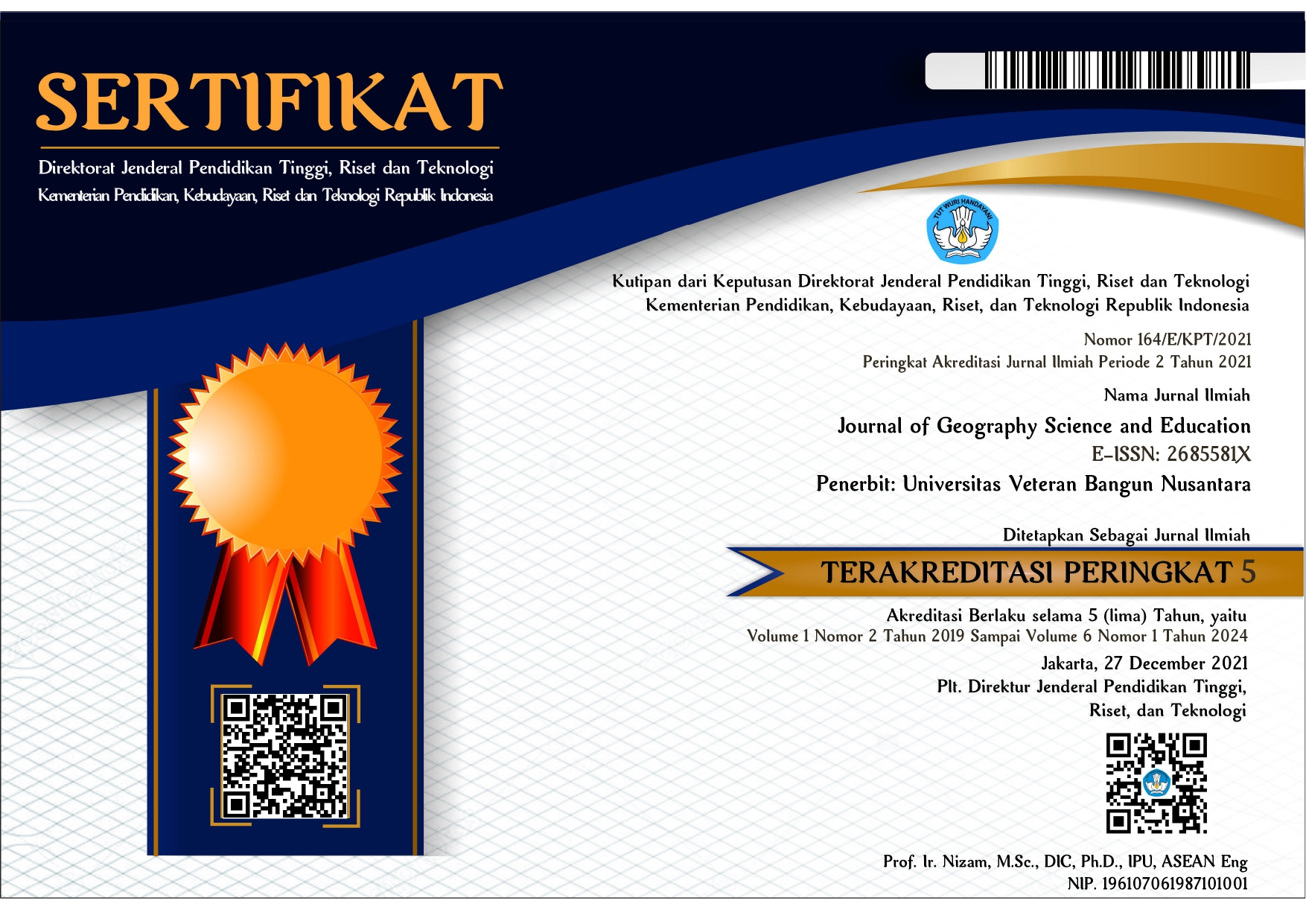Implementation of Field Study as an Active Learning Strategy in a Tourism Geography Course
DOI:
https://doi.org/10.32585/jgse.v7i2.7535Keywords:
field study , active learning , tourism , geography learningAbstract
Active learning is a crucial approach for creating dynamic and application-oriented learning environments. One relevant active learning method in Tourism Geography is the field study. This article aims to analyze the implementation of field study as an active learning strategy to enhance students’ understanding and engagement. Employing a mixed-methods approach, the study involved 30 students and one course instructor in a field activity at Rumah Pohon Waai, Central Maluku, Indonesia. Quantitative data were collected through questionnaires, tests, and evaluations of final reports, while qualitative data were obtained through observations, interviews, and student reflections. The findings indicate that the field study significantly improved conceptual understanding, analytical skills, as well as students’ motivation and participation in the Tourism Geography course. The article recommends broader adoption of field studies within experiential learning practices in higher education.
Downloads
Downloads
Published
How to Cite
Issue
Section
License
Copyright (c) 2025 Dwi Partini, Asep, Dewilna

This work is licensed under a Creative Commons Attribution-ShareAlike 4.0 International License.
Authors who publish with the Journal of Geography Science and Education agree to the following terms:
- Authors retain copyright and grant the journal the right of first publication with the work simultaneously licensed under a Creative Commons Attribution License (CC BY-SA 4.0) that allows others to share the work with an acknowledgment of the work's authorship and initial publication in this journal.
- Authors are able to enter into separate, additional contractual arrangements for the non-exclusive distribution of the journal's published version of the work (e.g., post it to an institutional repository or publish it in a book), with an acknowledgment of its initial publication in this journal.
- Authors are permitted and encouraged to post their work online (e.g., in institutional repositories or on their website) prior to and during the submission process, as it can lead to productive exchanges, as well as earlier and greater citation of published work.










